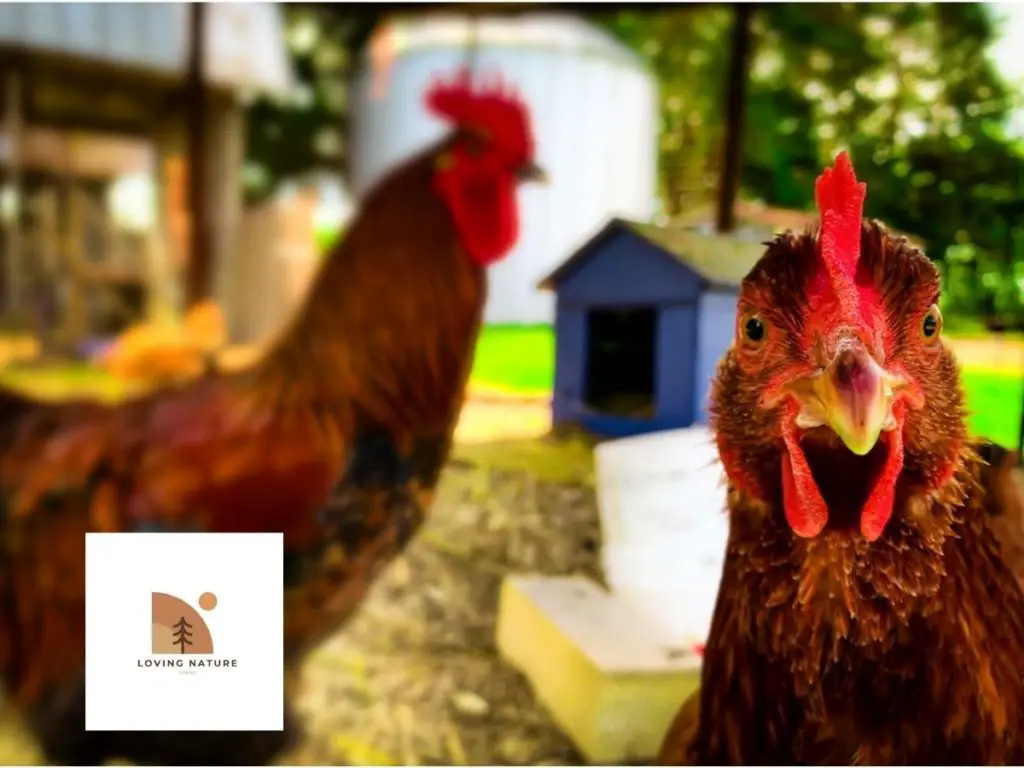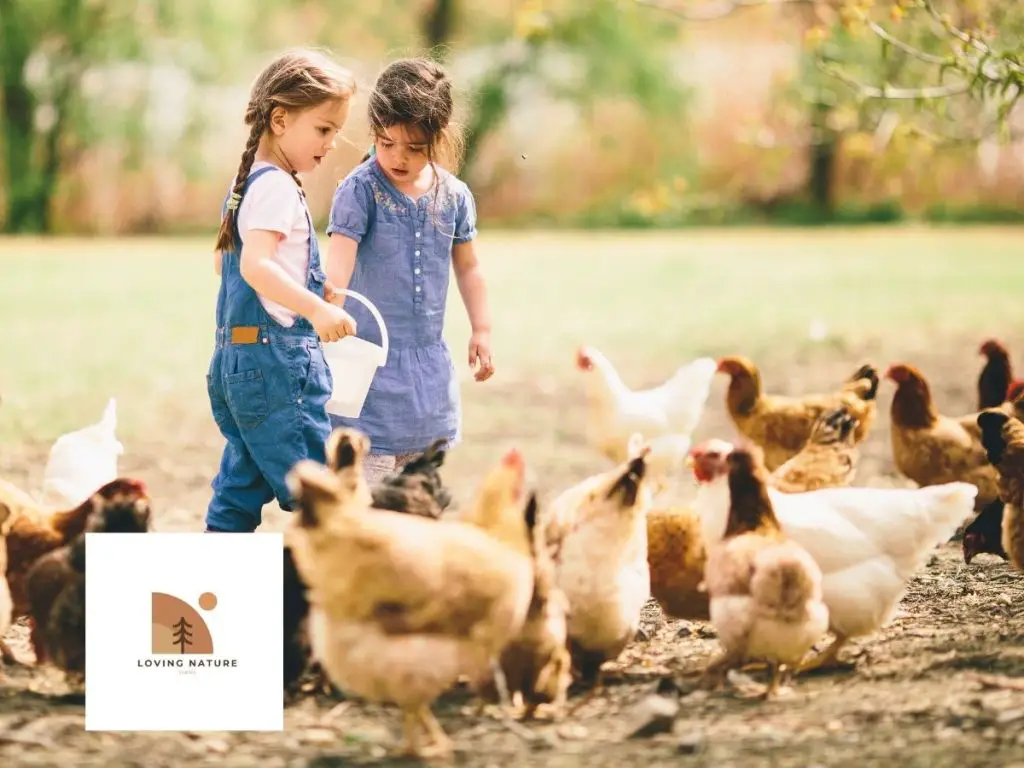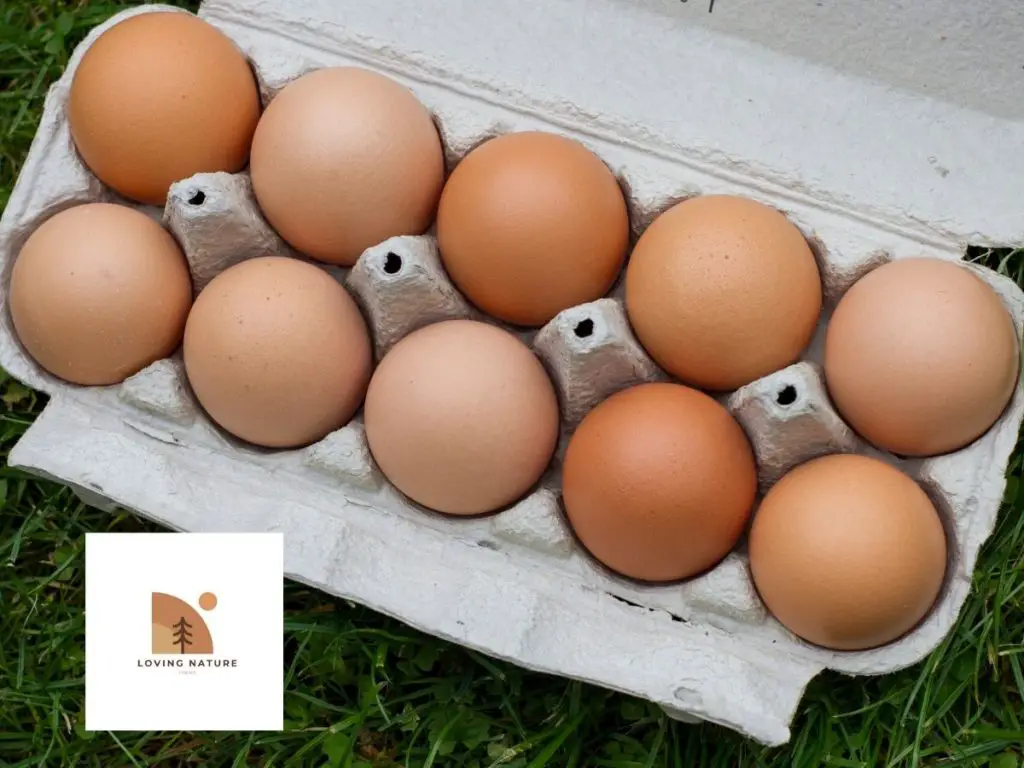When most people think about how eggs are fertilized, they think of a rooster. But did you know that chickens can lay eggs without a rooster? In this article, we will explore the process of fertilization in chickens and learn some surprising facts about it!
If you’re wondering how do chickens lay eggs without a new rooster, you’re not alone. Fortunately, hens can lay an average of 276 eggs a year without a rooster present. This number varies, however, depending on breed, quality of food, and environment. But regardless of whether a rooster is necessary, chickens are naturally predisposed to lay eggs.

Hens lay eggs regardless of whether a rooster is present
Hens will always lay eggs, but the process is different. Eggs produced by hens in coops with a rooster will be more fertile than those produced without it. This is due to the fact that the male chicken secretes androgenic hormones, which cause the hen to ovulate. However, only female chickens produce eggs, and the hormones present during the development of the chicken embryo in the mother’s egg determine the gender.
A healthy female chicken can lay eggs without a rooster, but unfertilized eggs do not grow into chicks. While a hen is fully grown and ready to lay eggs, her first few eggs may have a soft shell and an odd shape. Once this happens, the hen will no longer need a rooster to produce eggs.
Hens can live with more than one rooster. One rooster can cover up to fifteen hens. In larger flocks, two roosters are acceptable. In the case of a large flock, there will be an ‘alpha’ male and subordinate males. This means the rooster will be the alpha male and will protect his flock.
While keeping a rooster is not necessary, hens do prefer a rooster. The rooster not only fertilizes the eggs, but he also protects the flock. He will also sound an alarm if he perceives danger, resulting in a healthy batch of eggs. Lastly, roosters are beneficial for the hens, as they produce eggs that are fertile.

Roosters prevent hens from fighting
One way to keep roosters out of a flock is to introduce them to a similar breed. A similar breed reduces the chances of roosters fighting among hens, which is especially important if you want your hens to lay eggs and lay healthy eggs. The other way to keep roosters from fighting is to give them a lot of space.
Besides being a beneficial addition to the flock, roosters also have a role in the pecking order. If roosters are absent, the dominant hen takes over and pecks at other hens. While this is a natural phenomenon, excessive pecking can lead to a hen losing feathers and bleeding. If the rooster is overbearing, the hens should be separated by enough space.
Although roosters are not the most sociable animals, they can be beneficial to the flock’s health. Moreover, they are natural leaders of a flock. Their hefty bodies and substantial stature make them the perfect choice to guard hens. Roosters are also good at protecting hens from predators and act as peacekeepers in a flock.
Chickens are a social species. While this means that they can fight with one another, chickens will usually resolve disagreements in the flock if they’re paired with a rooster. Occasionally, roosters will engage in a shoving match at dinner time, or even a full-blown brawl. Even if they’re not harmful, frequent fights can affect the flock’s general health and egg production.
Having a rooster in a flock is an excellent idea if you have multiple hens. It helps prevent hens from fighting each other and keeps the pecking order in order. It’s important not to have too many roosters as this can result in broken feathers, bare necks, and injuries. In fact, if you have several roosters, you should have a rooster in each flock.
Besides preventing hens from fighting one another, roosters also help hens lay eggs. A rooster will also fertilize the eggs that will eventually hatch into chicks. To make this possible, you can purchase fertilized hatching eggs from an online hatchery. You can also get a rooster to breed replacement layers.
Roosters provide fertilized eggs
Having a rooster is necessary if you want your chickens to lay fertilized eggs. Chickens don’t have a vagina or a penis, so their cloaca is the only reproductive organ. The rooster calls the hen to mate and flattens itself on the ground, where the rooster vents from its top. The rooster then injects his sperm into the hen’s cloaca. The process is repeated until the eggs hatch.
When chickens mature, they can begin laying eggs naturally. The exact age is determined by the breed of hen. The age at which hens begin to lay eggs and how many eggs a hen lays each week depends on the type of breed. A heavily feathered breed may be less fertile than a lightly feathered breed. To improve fertility, trim the feathers around the vent area to prevent the buildup of feces.
Roosters provide fertilized eggs for your chickens for free, but you’ll need to make sure there are enough hens to make it successful. In general, 10 hens to 1 rooster is a good rule of thumb to avoid violence between the rooster and hens. Having a rooster in your flock is a great idea, as they are beneficial to the health of your chickens and the production of fertilized eggs.
Incubating an egg is a simple process. A light source is held up to the egg to examine its quality. An opaque egg indicates a successful mating. Once the egg is incubated, it will become a blastoderm, which is the first stage of embryonic development. A solid white spot indicates the blastodisc is inside. The yolk will turn opaque if the egg is hatched.
Roosters are beneficial to your chicken flock in a variety of ways. They are an important part of the flock because they provide fertilized eggs, but they are also a great source of protection for the hens. They are also a great addition to your flock and your home! They’re not only great for the eggs you produce but also provide a lot of beauty to the flock.
Roosters are beneficial to a flock
Roosters are beneficial to a chicken flock for several reasons. Roosters guard the flock, look out for food sources, and act as protectors. The rooster also helps with the maintenance of the flock’s unity. When the flock is threatened, the rooster will give an alarm call that will scare away intruders. If it feels threatened, the flock will run to the coop to defend themselves.
Roosters are the undisputed leaders of the flock. He is the scout of the flock, alerting the flock to food sources. He also protects the hens, keeping them safe from predators. When the rooster has chicks, he will protect them, even if that means sacrificing his own life to keep them safe. Roosters are great for your chickens because they are beautiful to look at.
Roosters also provide a great economic benefit to a chicken flock. While you can still buy a whole new flock of hens for this purpose, roosters can make your flock a lot larger. A rooster can mate with a majority of the hens in the flock. Roosters can also protect the hens from predators and even control rodents.
Roosters also help the hens reproduce. They have brighter colors and personalities than hens. This makes them easier to spot than hens. They also make your flock more attractive and will help with egg production and meat production. Roosters are a good investment for a chicken farm because they produce eggs and meat. In addition, they’re also a great source of entertainment.
A rooster can also help with the introduction of new members to the flock. Although hens have to be slowly introduced to a rooster, they usually welcome the addition of new hens without much difficulty. And when it comes to new pullets, roosters help with the introduction because they keep squabbles in check.
Having a rooster in a flock can improve the social atmosphere among the hens. Roosters are natural leaders and tend to woo the hens with their dances. Because roosters tend to have a more robust body, they are more likely to behave more peacefully. They also protect hens against bullies. It is important to remember that a rooster can provide more eggs than hens can lay by themselves.

Frequently Asked Questions
What Are Roosters Not Necessary For Chickens In Order To Lay Eggs?
There has long been a common misconception that roosters are needed in order for chickens to lay eggs. This belief can be traced back to the historical use of roosters in the farming industry, where they were primarily used for their meat and other products. However, modern poultry farming practices have evolved significantly since then, and we now know that roosters are not necessary for chickens to lay eggs.
The main reason why roosters are not necessary for egg production is because female chickens naturally produce a hormone called estrogen throughout their reproductive cycles. This hormone is responsible for driving egg production, regardless of whether there is a rooster present or not. Additionally, many modern chicken breeds have been selectively bred over time so that they can continue to produce eggs even without any male birds around.
Furthermore, when it comes to egg production, a rooster’s presence actually creates some unwanted drawbacks for farmers. Roosters can be aggressive and territorial towards hens, which can lead to injury and stress among the flock. Additionally, having multiple roosters present in a single population of chickens makes breeding much more difficult than it would normally be since all the males must be removed before mating can take place.
Do Roosters Lay Their Own Eggs?
One of the most common questions about chickens is whether or not roosters lay their own eggs. The answer, quite simply, is no. Chickens, like all birds, have an egg tooth on their beak which falls off after they hatch. This egg tooth is used to make a small hole in the egg so that the chick can breathe and begin to peck its way out.
Once the chick has hatched, the egg tooth is no longer needed and will fall off. Roosters do not have this egg tooth, and therefore cannot lay eggs. However, roosters are still an important part of the chicken life cycle. They help to protect the flock and fertilize the eggs that hens lay. As a result, a healthy flock needs both roosters and hens in order to thrive.
At What Age Do Chickens Start Laying Eggs?
There is no definitive answer to the question of when chickens start laying eggs, as this varies depending on a number of different factors. Generally speaking, female chickens will begin laying eggs once they have reached a certain age or weight. Some breeds may start as early as 5 months, while others may take up to 8 months, or even longer for rarer breeds.
Additionally, the environment in which the chickens are raised can have an impact on when they start laying eggs. Factors such as temperature, humidity levels, and the amount of light all play a role in determining when a chicken starts laying. In short, there is no definitive answer to this question, as it can vary widely depending on a number of different factors. However, most hens will start to lay eggs at some point between 6 and 8 months of age.
Why Is My Chicken Not Laying Eggs?
Chickens are extremely efficient laying machines. Under optimal conditions, a chicken can lay an egg almost every day. However, there are many reasons why a chicken might stop laying eggs.
One common reason is that the hen is not getting enough food or water. Chickens need a well-balanced diet to lay healthy eggs, and if they are not getting enough nutrients, they will eventually stop laying.
Another reason why chickens might stop laying eggs is that they are too hot or too cold. Chickens are sensitive to temperature changes, and if the temperature is outside of their comfort zone, they will stop laying.
Finally, chickens might stop laying eggs if they are stressed or sick. If a chicken is feeling anxious or ill, it will not lay eggs until it feels better.
Consequently, there are many reasons why a chicken might stop laying eggs. However, most of these reasons can be easily remedied with a little bit of care and attention.
How To Keep Your Chicken Laying Eggs
Any chicken keeper will tell you that one of the most rewarding parts of owning chickens is collecting fresh eggs every day. But what happens when your chickens stop laying eggs? While there are many potential reasons for this, the good news is that there are also many ways to encourage your chickens to start laying eggs again.
One of the simplest things you can do is to make sure that they have plenty of food and water. Chickens need a diet that is high in protein in order to lay eggs, so be sure to provide them with a nutritious feed. You should also make sure that their coop is clean and comfortable, as a dirty or cramped living space can stress out chickens and cause them to stop laying eggs.
Finally, remember that chickens are creatures of habit, so try to keep their daily routine as consistent as possible. By following these simple tips, you can help ensure that your chickens remain healthy and productive egg-layers for years to come.
Final Thoughts
Chickens are interesting creatures and play a vital role in the life cycle of a flock. They start laying eggs once they reach a certain age or weight, and will continue to lay eggs as long as they are well-fed and comfortable. There are many reasons why chickens might stop laying eggs, but most of these can be easily remedied with a little bit of care and attention. By following these simple tips, you can help ensure that your chickens remain healthy and productive egg-layers for years to come. Thanks for reading!
Leave a Reply